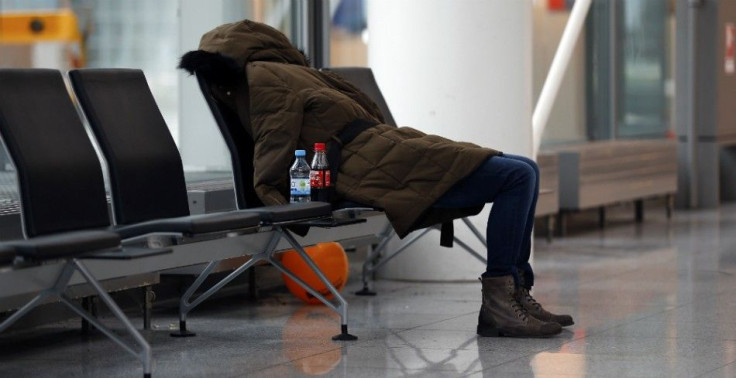Resetting Your Biological Clock

New research makes it possible to get over jet lag and shift work by taking pills.
People have a biological clock deep in the brain and different clocks in various parts of the body. It is now possible to synchronise these clocks better, research by Marc Cuesta, Nicolas Cermakian and Diane B. Boivin from the Douglas Mental Health University Institute and McGill University, has shown.
The circadian system comprises a central clock and clocks located in white blood cells. The study, published by the Federation of American Societies for Experimental Biology, shows that these peripheral cellular clocks can be synchronised with glucocorticoid tablets. Glucocorticoids are a type of steroid hormone that are involved in regulating the immune system.
Since humans are biologicalls diurnal, staying up at night can disrupt the body's biological clocks. Over a period of time, such disruption can make the body susceptible to heart and metabolic disorders and even cancer. People who work shifts are particularly at risk of these problems.
The study, which took place at the Centre for Study and Treatment of Circadian Rhythms, suggests that though we still don't understand the mechanism by which the peripheral biological clocks adapt to night shift work, these clocks are believed to depend on the central clock. The central clock sends signals to the peripheral biological clocks via glucocorticoids. This is the first study to uncover the role played by glucocorticoids in transmission.
Since white blood cells help the body fight diseases, the study suggests that night shift work has an adverse effect on the immune system. Earlier studies have exposed shift workers to bright lights at night by way of syncronising their central biological clock to their atypical work schedule. While the current study does not propose using glucocorticoid pills right away, it opens the path for using glucocorticoid therapy along with light therapy to better synchronise the biological clock in people.
For the study, the researchers caused a disorientation in the body clocks of 16 subjects by keeping them in temporal isolation chambers. They then found that when the subjects were given glucocorticoids in tablets, their body clocks returned to normal.
According to The Centers for Disease Control and Prevention 43.7 percent of Americans between the ages of 18 and 25 fell asleep unintentionally during the day at least once in the month prior to getting surveyed. The figure was 34 percent for 35 to 45 year olds and 44.6 percent in seniors over 65. Sleep deprivation is named a public health epidemic in the United States.
To contact the writer, email: sonali.raj@gmail.com





















